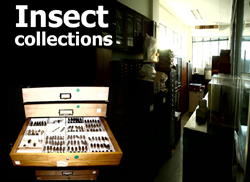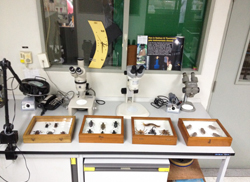Insect vectors
Identification of medically important insect and other arthropods
The Department has expertise on the taxonomic identification of important insect and other arthropods. Many unknown specimens throughout the country have been clarified by our staffs.
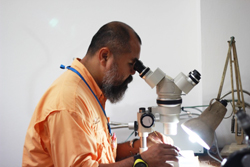
New species and new records of Medical Entomology
This is an important goal to resolve entomological problems in collaboration with the Department of Disease Control, Ministry of Health through research making the results available to other scientists, educators, and the gen-eral public to develop effective control measures for the community. As a result of a previous study on the impact of the Asian Tsunami on mosquito vectors in the most affected areas of Phang Nga Province in December 2004, for instance, a small scale project for controlling mo-quito larvae inhabiting swamps and ponds contaminated by seawater using Bacillus thuringiensis israelensis (VectoBac® WDG) and application of natural mosquito repellents to prevent the local people from mosquito bites was conducted with a sat-isfactorily success; its use has been extended to the worst-affected area, Ban Nam Khem Village at present.

The department help investigate reemerging and emerging diseases, e.g., local transmission of malaria in Sa Kaeo Province and autochthonous visceral leishmaniasis of Thailand and subsequently, a new species of Leishmania is proposed.
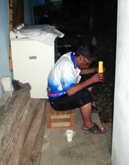
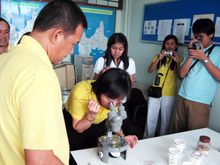
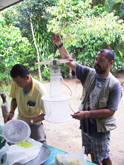
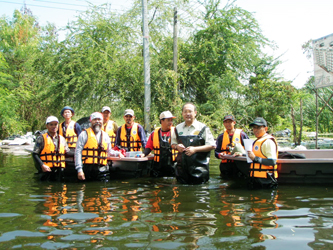
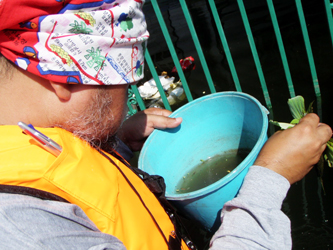
In addition, the department works with local public-health officials to deter-mine infestations of mites in the external ear canals of shallot farmers in Si Saket Province, and an outbreak of contact dermatitis due to infestation of rove beetles in apartments in Phra Nakhon Si Ayutthaya Province, as well as identification of medically important insects, such as maggots causing myiasis (recently, bot flies from in travellers), ticks and mites for general hospitals. Recently, we have survey on flooding mosquito in the flooding areas. This result makes an appropriate control of mosquito vectors after flooding situation.
Insect Vector Rearing Laboratory
The Department has colonized laboratory strains of important mosquito vectors in taxon of Anopheles, Aedes, Culex and Mansonia including other medically important insects. for example, cockroaches, flies, bedbugs and ticks to provide a large number for research and educational purpose.
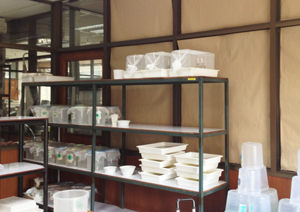
Mosquito Museum and Reference center
The Department of Medical Entomology acts as a reference center on mosquito vectors of Thailand through establishment of the Mosquito Museum. The collections include 18 genera of mosquitoes with more than 20,000 specimens (mounted slide and pinned). In addition, DNA of mosquito vectors are extracted and preserved in the museum collections. Academic consultations, especially on mosquito borne diseases and their control measures are also provided.
